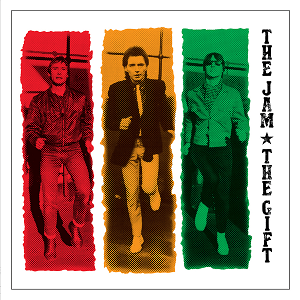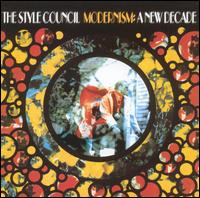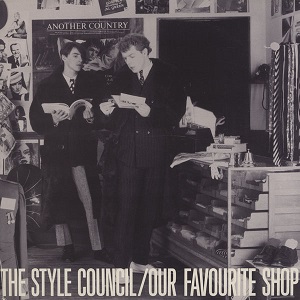To their credit, Bruce Foxton's basslines are as smooth and melodic as they've ever been on The Gift, and Rick Buckler's drumming is ferocious throughout this album, and on the non-album tracks like "Beat Surrender" and "Bitterest Pill I Had To Swallow". Listening to all six of these albums together, I expected to come away with Sound Affects as my clear favourite, but as it turns out, I have two takeaways (curries, perhaps). I love the ambition of both Setting Sons and The Gift, and I found Sound Affects less cohesive; and, my favourite Jam album is their greatest hits collection, especially if it includes b-sides.

Also, I have a strange obsession with songs which appear to be rooted in the Dr. Who theme, and "Just Who Is The 5 O'clock Hero" fits that bill. "Trans-Global Express" is just too weird, and again, Buckler beats the hell out of it. "Town Called Malice" is just a subtle reminder that this album is, unfortunately, just named after the songs, rather than a play on words, and I'm disappointed that the album wasn't called "A Town Called Malice". Oh well. Overall, though, this one just leaves me wondering why I don't listen to it more. Absolute belter.
It is possible though, that when this album loses me, it's because it is such a belter. A song like "That's Entertainment" hits you hard where it hurts because it feels desperate, in a way "Town Called Malice" doesn't, because it sounds so good. I miss the ballads of the earlier albums. Paul's lyrics work well with sparse instrumentation. This is great though:
A whole street's belief in Sunday's roast beef
Gets dashed against the Co-op
To either cut down on beer or the kids new gear
It's a big decision in a town called Malice
Professionally, I am working with TEI Publisher, and, well, it's quite impressive. In the past, I have worked with DITA and DocBook, which are less useful since the extra semantic tags in HTML5. TEI has a layer of precision that I find quite exciting. Hopefully this will be useful on my current project.
But that's it. These songs definitely are a gift, and I will be going back and adding more about the singles I missed, like "Going Underground". If Paul Weller had stopped after The Jam, that would be an impressive legacy. Obviously, that was not the case. Much of the overt politicization which I tend to attribute to The Jam is possibly better attributed to Setting Sons and a number of singles like "Going Underground", and many early songs that I have enjoyed are much more personal in nature, although songs like "In The City" or "This is Modern World" definitely contributed to the "youth explosion" vibe.












